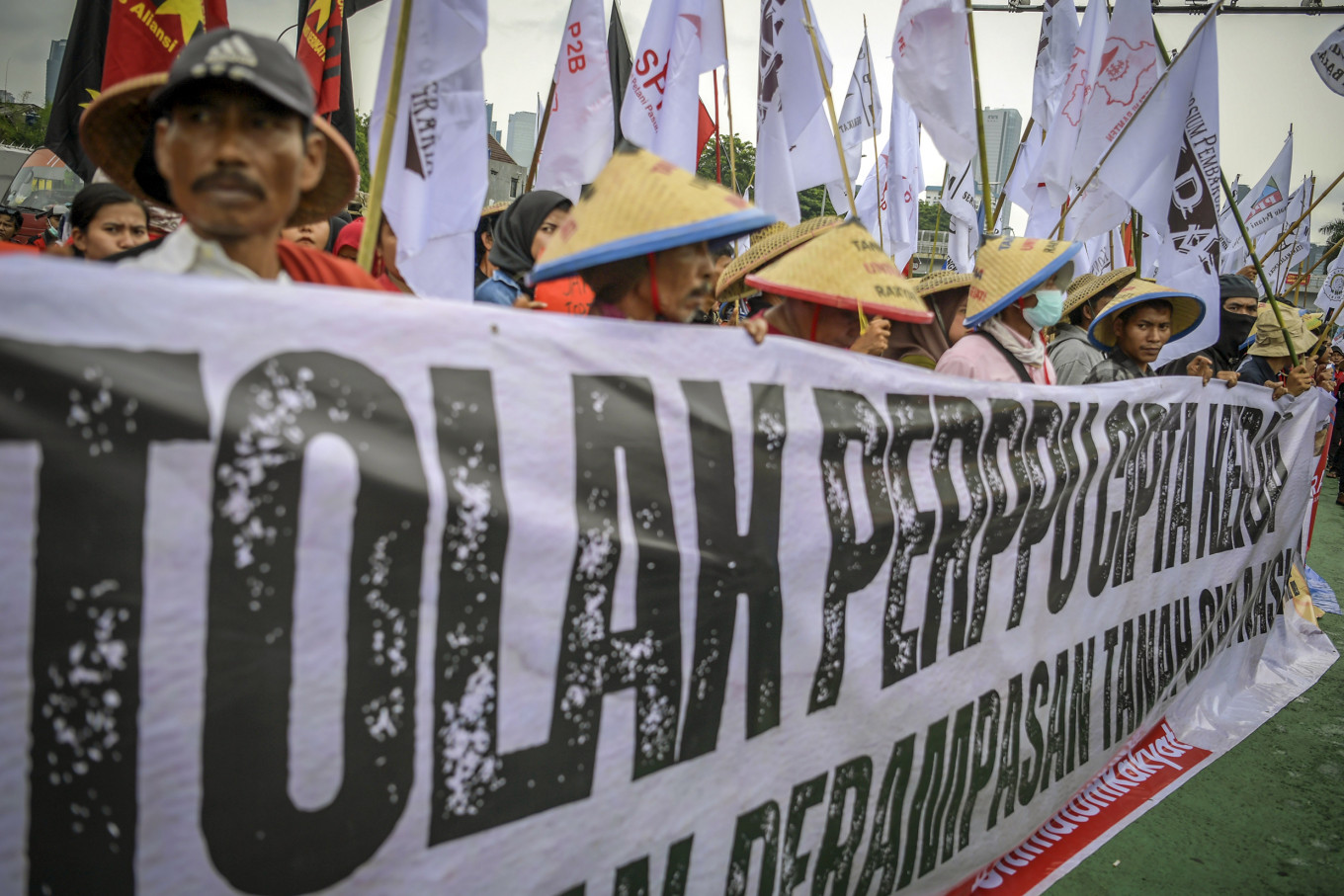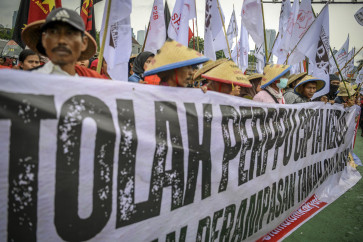Popular Reads
Top Results
Can't find what you're looking for?
View all search resultsPopular Reads
Top Results
Can't find what you're looking for?
View all search resultsIs Indonesia’s democracy really backsliding?
The last 10 years have been challenging for Indonesian democracy, but during this period, we have also witnessed lively public protests on the streets and in social media that consistently hold the state accountable.
Change text size
Gift Premium Articles
to Anyone
T
he world is currently witnessing a decline in democracy to levels last seen in 1986. As of 2022, 75 percent of the world's population lives under autocratic regimes, with the Asia-Pacific region experiencing the most significant democratic decline.
These unfortunate statistics are among the key findings of the V-Dem Democracy Report 2023, titled Defiance in the Face of Autocratization. The report places Indonesia among the countries that are backsliding toward autocracy, despite its status as an electoral democracy.
While not all experts agree with the notion of global democratic decline, the pushback from scholars like Adam Przeworski, a leading political scientist, who dismissed the report as a mere "publicity stunt" on Twitter, has fueled a contentious debate over the state of democracy around the world. This debate is among the most crucial of the past decade.
V-Dem is not the only organization to present large-scale data showing a trend of democratic backsliding in most parts of the world. Other groups, such as Freedom House and Polity, have also shown a similar trajectory over the past few years. All of these major organizations share a common stance that many countries worldwide have experienced a decline in democratic values, or even a direct U-turn toward autocracy, over the past decade.
However, critics have also made an important point about not exaggerating the claim of democratic decline.
If there is one way to summarize the core problem of this decade's debate, it is the question of how we define democracy when assessing a country's level of democratic values. The term "democracy" can be divided into two definitions: minimalist and maximalist.
The minimalist definition of democracy considers competitive elections as the core element of democracy. Przeworski, for example, advocates for this definition and argues that elections enable societies to manage conflicts and ensure that every victory is temporary, thus so is every defeat. Elections are the primary aspect of democracy because they allow the public to have a say in policy decisions made by elites, and they serve as a credible commitment to voters by controlling who governs the country (as argued by Acemoglu and Robinson, 2009).



















